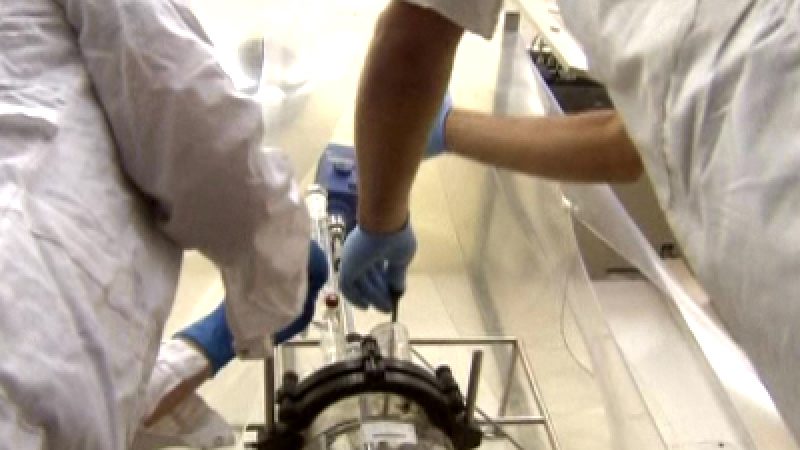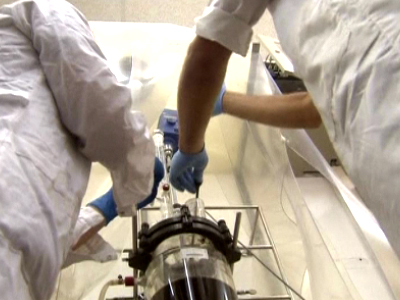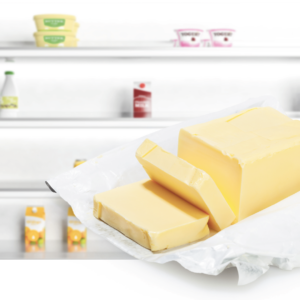
Israel’s Innovative Soil Cleaning Process

An Israeli research team from the Hebrew University of Jerusalem has developed a new process for cleaning contaminated soil.
Using cement mixers as giant green laundry machines, their cleaning formula whisks dangerous materials away from the soil, leaving desirable minerals intact.
[Dr. Zvi Ludmer, Developer]:
„What this process enables is to extract both organic dirts, like oil, pesticides and so on, and heavy metals, in one step. Within few minutes we extract everything.“
Lab technicians demonstrate the novel cleaning process. They pour contaminated soil into a mixer that contains hot water. Then they add their new cleaning agent that binds to heavy metals and extracts them. While the liquid inside the mixer cools down, it starts to separate into two different phases. After pouring the liquid into a filter, the darker, more dangerous materials are extracted, leaving clean soil in the filter.
Doctor Ludmer says the process is economically efficient and unique compared to current methods of cleaning soil.
[Dr. Zvi Ludmer, Developer]:
“We are dealing with very contaminated soils which contain both organic impurities or contaminants, and heavy metals. Now, since this is a process that we do in one step and no one else does it the way that we do it, it is very economic.“
This formula would greatly benefit properties close to industrial parks as soil contamination can cause groundwater pollution and be a health hazard.
 (ohne Unterschrift)
(ohne Unterschrift)



![[Live] Magdeburg: Pressekonferenz mit Polizei und Staatsanwaltschaft](https://images-de.epochtimes.de/uploads/2024/12/THUMB-PK-Magdeburg-400x225.jpg)























vielen Dank, dass Sie unseren Kommentar-Bereich nutzen.
Bitte verzichten Sie auf Unterstellungen, Schimpfworte, aggressive Formulierungen und Werbe-Links. Solche Kommentare werden wir nicht veröffentlichen. Dies umfasst ebenso abschweifende Kommentare, die keinen konkreten Bezug zum jeweiligen Artikel haben. Viele Kommentare waren bisher schon anregend und auf die Themen bezogen. Wir bitten Sie um eine Qualität, die den Artikeln entspricht, so haben wir alle etwas davon.
Da wir die Verantwortung für jeden veröffentlichten Kommentar tragen, geben wir Kommentare erst nach einer Prüfung frei. Je nach Aufkommen kann es deswegen zu zeitlichen Verzögerungen kommen.
Ihre Epoch Times - Redaktion